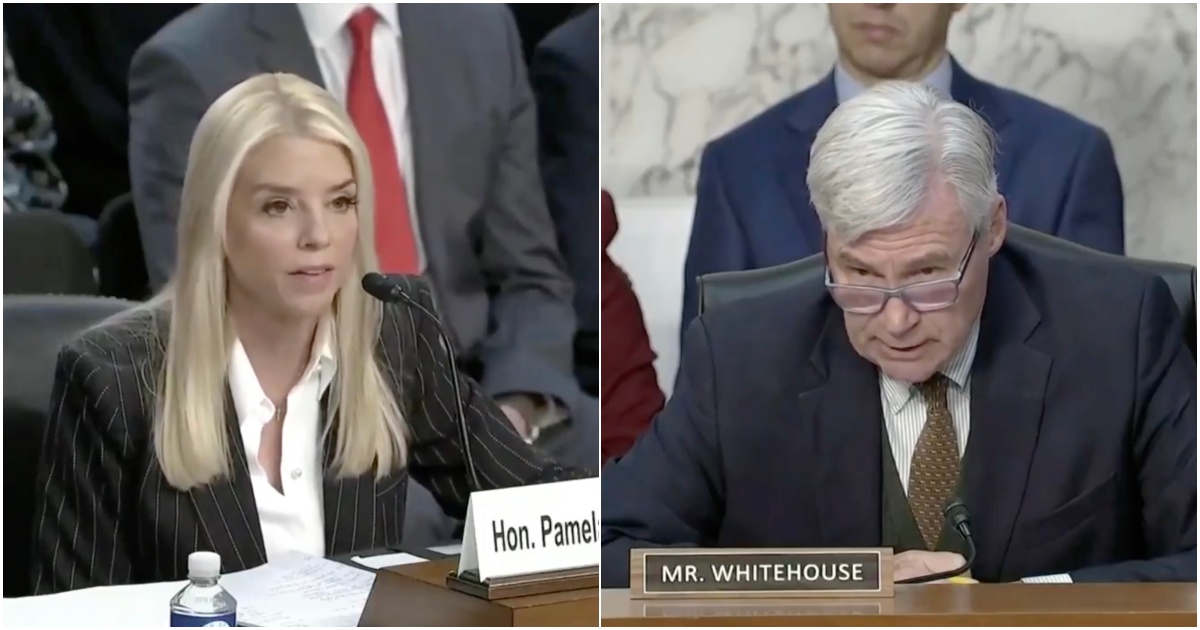The Department of Justice under President Joe Biden is facing intense backlash after granting a plea deal to Jairo “Funny” Saenz, a high-ranking leader of the notorious MS-13 gang. Saenz, who admitted his involvement in seven gruesome murders, avoided both the death penalty and a life sentence in exchange for a deal that ensures a maximum of 60 years in prison, with a minimum sentence of 40 years.
The decision has sparked outrage, with critics calling the plea deal an affront to justice and an insult to the families of the victims. Saenz, 28, led the Sailors, a violent branch of MS-13 operating in Suffolk County, New York, alongside his brother, Alexi. Their reign of terror was marked by ruthless killings and a reputation for brutality.
Give Me News Podcast
Among the most horrifying of Saenz’s crimes was the September 2016 murder of two high school students, Nisa Mickens, 15, and Kayla Cuevas, 16. Cuevas had been targeted after disputes with gang associates, and the two girls were attacked while walking down a residential street.
According to the Justice Department, Saenz and several MS-13 members chased the girls before savagely beating them with baseball bats and hacking them with machetes. While gang members carried out the brutal assault, the Saenz brothers sat in a car, ensuring no police were nearby. The attack left the community reeling, as both girls suffered multiple fatal injuries.
Just weeks later, Saenz and his associates killed 15-year-old Javier Castillo, whom they suspected of affiliating with a rival gang. Luring Castillo 30 miles away under the guise of smoking marijuana, the gang took turns hacking him to death with a machete. His body was buried in a shallow grave, only to be discovered a year later. The autopsy revealed horrifying sharp-force injuries to Castillo’s head, neck, torso, and extremities.
Law enforcement officials and victims’ families have condemned the plea deal, arguing it fails to deliver justice for the victims. Lou Civello, president of the Suffolk County Police Benevolent Association, did not mince words.
“It’s disgraceful. It’s an insult to the families,” Civello told Fox News. “When you look at how barbaric these crimes were—murdering young kids with machetes and baseball bats—this is a clear case for the death penalty.”
Civello emphasized that Saenz’s potential sentence does not match the severity of his crimes. If Saenz receives the minimum sentence of 40 years, it would equate to serving roughly six years for each murder.
“This person should never see the light of day again,” Civello added. “The idea that he could eventually walk free is a slap in the face to the families and our justice system.”
The plea deal comes amid broader criticism of the Biden administration’s criminal justice policies. President Biden has commuted the sentences of nearly all federal death row inmates and has vocally opposed the death penalty, a stance that many critics argue prioritizes ideology over justice.
The decision to offer Saenz a plea deal aligns with this approach but has reignited the debate over capital punishment. Proponents of the death penalty argue that cases like Saenz’s underscore its necessity as both a deterrent and a means of ensuring justice for heinous crimes.
The timing of the plea deal, just weeks before Biden is set to leave office, has also raised eyebrows. Critics accuse the administration of using its final days to push leniency for violent criminals, leaving a controversial legacy in the realm of justice reform.
The Saenz brothers’ brutal crimes highlight the persistent danger posed by MS-13, a gang infamous for its violence and extensive criminal network. Despite federal efforts to dismantle the organization, MS-13 remains active in multiple U.S. regions, continuing to threaten communities.
Law enforcement officials stress the importance of severe sentences in deterring gang activity and protecting the public. Civello and others argue that lenient punishments like Saenz’s plea deal send the wrong message to criminal organizations, potentially emboldening them.
As Saenz awaits sentencing, the families of his victims and the Suffolk County community are left grappling with a justice system they feel has failed them. While the plea deal ensures Saenz will spend decades behind bars, many argue it is insufficient for a man responsible for such heinous acts.
The Biden administration’s handling of this case will likely remain a focal point in debates over criminal justice reform and federal policies on violent crime. For critics, the plea deal represents a broader failure to prioritize the safety and justice owed to victims and their families.
As the nation continues to wrestle with the balance between reform and accountability, cases like Saenz’s serve as a stark reminder of the stakes involved in these debates. Whether justice has truly been served remains a deeply divisive question.


